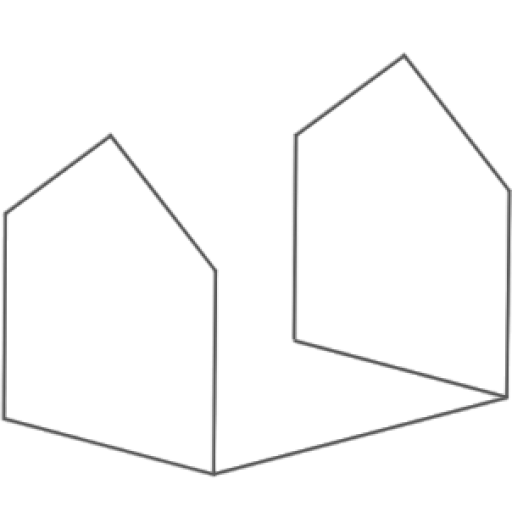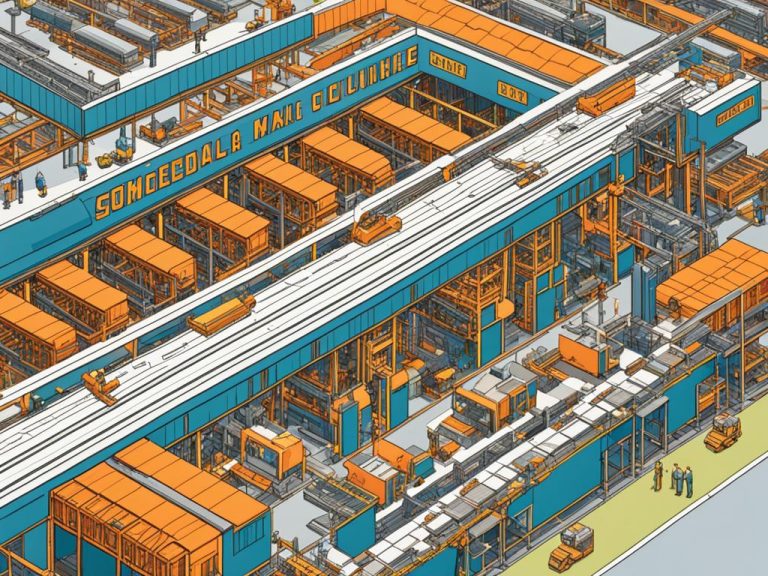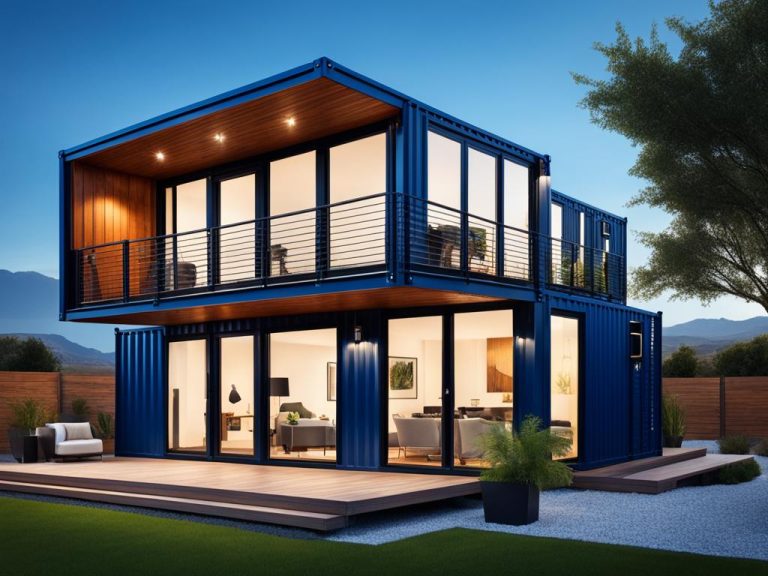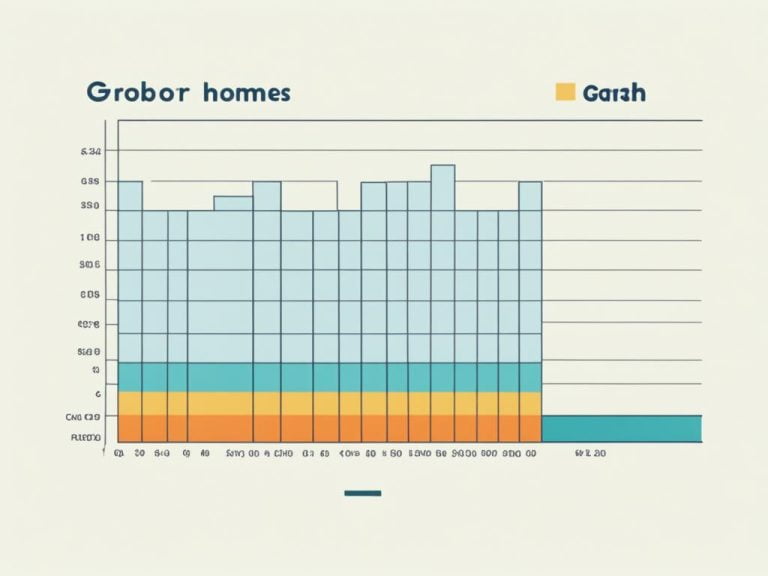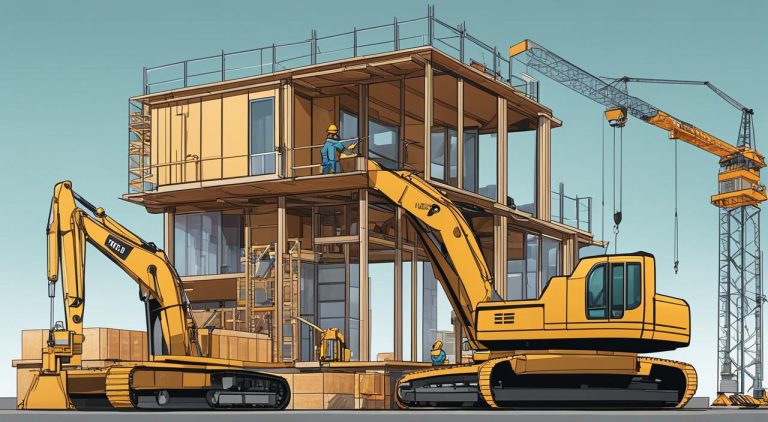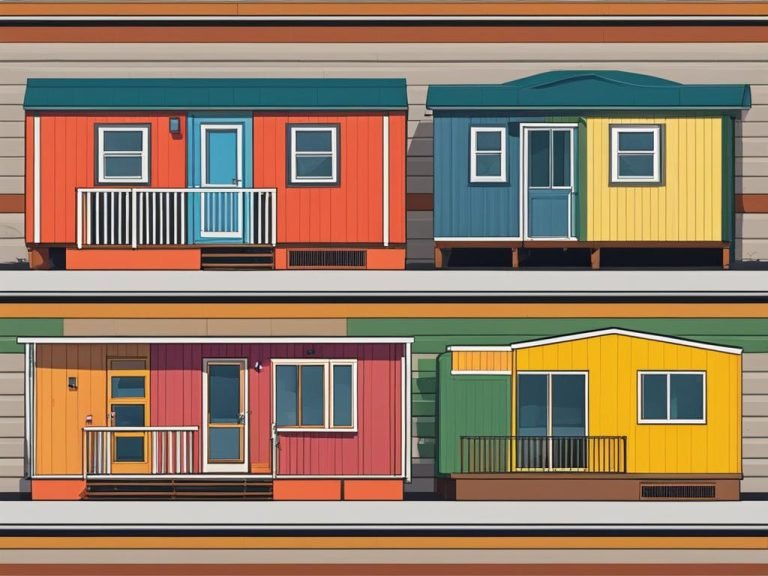What do modular homes generally look like?

Modular homes are revolutionizing the housing industry with their innovative design and construction methods. These homes are built in a factory using offsite construction techniques, resulting in a unique blend of efficiency and style.
When it comes to appearance, modular homes offer a range of options to suit different tastes and preferences. Whether you’re looking for a sleek and modern design or a more traditional aesthetic, there’s a modular home for you. These homes can be flats, apartments, or houses, providing versatile living spaces for individuals and families alike.
One of the key features of modular homes is their contemporary design. Incorporating modern materials such as timber, steel, concrete, and glass, modular homes have a distinctive look that sets them apart from traditional homes. The use of these materials not only adds to the visual appeal but also enhances the durability and energy efficiency of the homes.
Modular homes are customizable, allowing homeowners to personalize their living spaces according to their needs and preferences. From open floor plans to custom finishes, there’s a wide range of options available to create a home that truly reflects your style.
Key Takeaways
- Modular homes are built in a factory using offsite construction techniques.
- They come in various designs and can be customized to suit individual preferences.
- Contemporary materials such as timber, steel, concrete, and glass are used in their construction.
- Modular homes meet the same building codes and energy efficiency standards as conventionally built homes.
- They offer a combination of efficiency, style, and versatility.
The Advantages
Modular homes offer numerous advantages over conventional homes. Whether you’re looking for a quicker construction time, cost savings, or energy efficiency, modular homes have got you covered.
1. Quicker Construction
When it comes to modular homes, time is on your side. Unlike traditional homes that can take up to 40 weeks to complete, modular homes can be built in less than two weeks. This accelerated construction time means you can move into your new home sooner, avoiding the long wait associated with conventional construction.
2. Minimized Delays
Skills and materials shortages can often cause delays in home construction projects. However, modular homes are built in a controlled factory environment, mitigating such issues. This controlled setting ensures that the necessary skills and materials are readily available, minimizing the risk of delays and keeping your project on schedule.
3. Cost Savings
Modular homes are often more cost-effective than their conventionally built counterparts. This is primarily due to the mass-production capabilities of modular construction, which allow for automated manufacturing processes. The efficiency and precision of these processes help reduce labor costs and material waste, resulting in significant savings for homeowners.
4. Energy Efficiency
Another advantage of modular homes is their energy efficiency. With advancements in building technologies, modular homes are designed with energy-saving features that help minimize energy consumption. From high-quality insulation to energy-efficient appliances, these homes are built to meet modern energy standards, reducing both your carbon footprint and utility bills.
5. Wide Range of Contemporary Designs
Don’t compromise on style when choosing a modular home. These homes offer a wide range of contemporary designs that cater to various architectural preferences. Whether you prefer a modern, minimalist look or a more traditional aesthetic, modular homes can be customized to reflect your unique style and taste.
Experience the advantages of modular homes today and enjoy a quicker, more cost-effective, and energy-efficient living space.
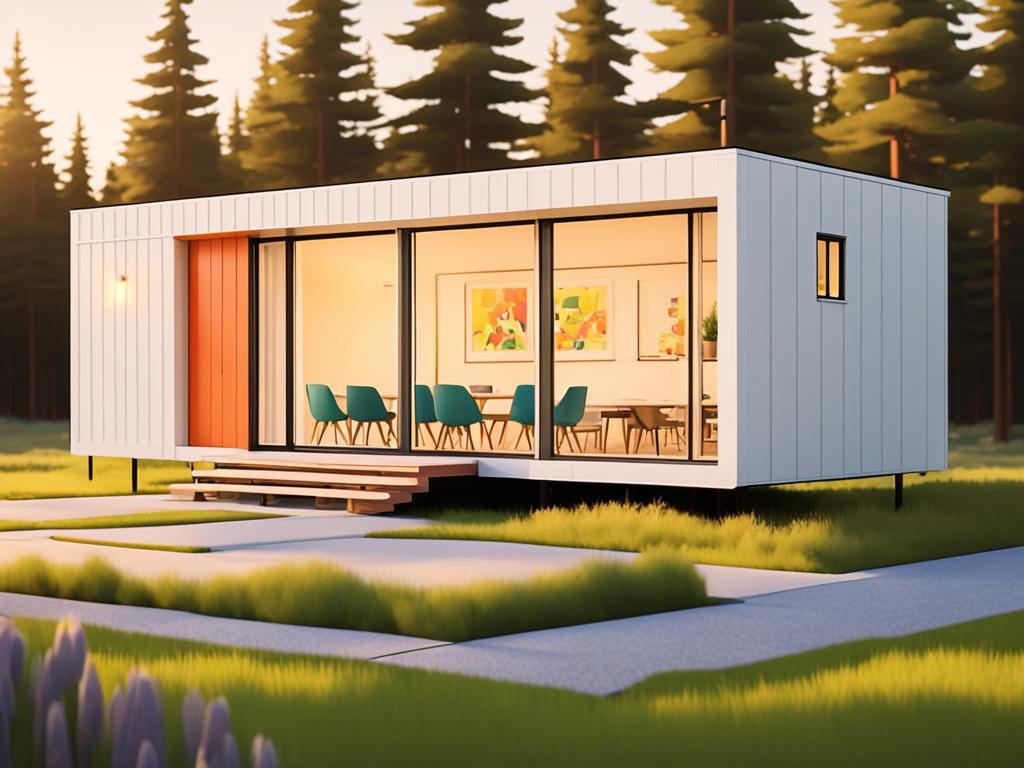
The Disadvantages
While modular homes have many advantages, it’s important to consider the potential drawbacks they may have. Understanding these challenges can help you make an informed decision about whether a modular home is the right choice for you.
1. Limited Design Options:
Compared to conventionally built homes, modular homes often have a more limited range of designs and customization options. This is because modular homes are constructed using pre-designed modules that can only be modified to a certain extent. While there are still plenty of styles and layouts to choose from, if you have a specific vision in mind, you may find it challenging to fully customise your modular home to meet your exact requirements.
2. Maintenance and Repair Complexity:
Modular homes can be more complicated to maintain and repair compared to homes built using traditional methods. This is because of the construction methods and materials used in modular home construction. It’s essential to have a good understanding of the specific maintenance needs of your modular home and ensure that you have access to skilled professionals who are familiar with modular home construction techniques in case repairs or renovations are required.
3. Limited Modification and Expansion:
Modifying or extending a modular home can present challenges. The modular nature of these homes means that making significant alterations or additions may be more difficult compared to conventionally built homes. While minor modifications can still be made, such as adding a porch or changing interior fixtures, extensive changes may require more planning and coordination with the modular home manufacturer and builder.
4. Resale Challenges:
When it comes to reselling a modular home, there may be some challenges. Some potential buyers may be unfamiliar with modular home construction methods and may have misconceptions or reservations about their quality or durability. This can make it more difficult to find buyers and negotiate a fair price for your modular home. However, as modular homes gain popularity and become more widely accepted, these challenges may become less significant.
Despite these disadvantages, modular homes still offer many benefits and are a viable housing option for many individuals and families. By weighing the pros and cons and considering your specific needs and preferences, you can determine if a modular home is the right fit for you.
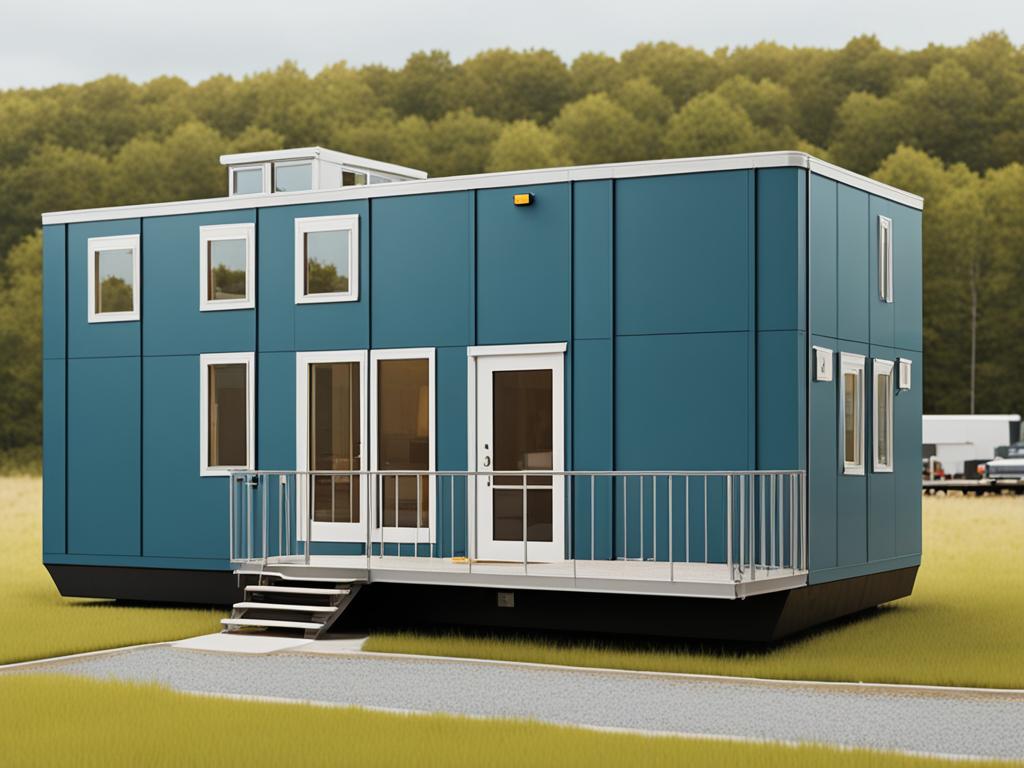
Are Modular Homes like Mobile Homes?
When considering modular homes, it’s important to clarify that they are not the same as mobile homes or park homes. Modular homes are built to high standards of design and construction, using the same materials and meeting the same building regulations as conventionally built homes. They are considered permanent structures and offer contemporary layouts, high energy efficiency, and often come with warranties similar to those of conventionally built homes.
Unlike mobile homes which can be moved, modular homes are assembled on-site using sections or modules that are constructed offsite in a factory. This allows for efficient and controlled construction while maintaining the quality and durability of a traditional home. With modern modular home construction standards, the emphasis is on ensuring that these homes meet or exceed the same quality benchmarks as conventionally built homes.
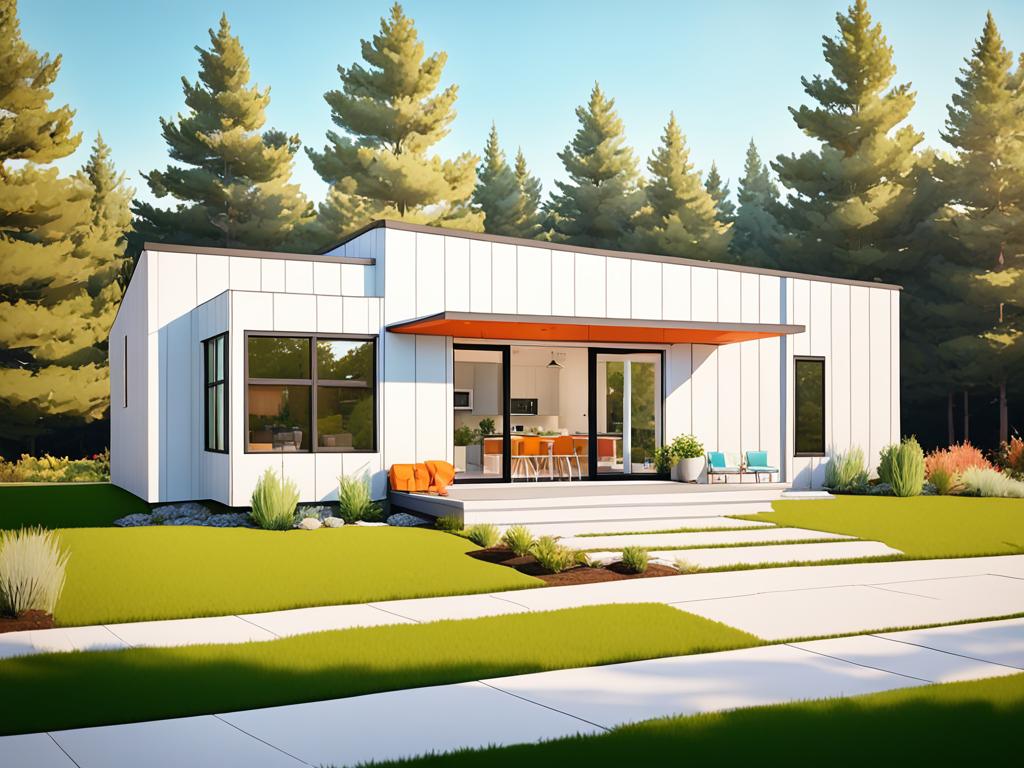
Modular homes can be customized to suit individual preferences and are available in a wide range of designs and layouts. They are designed with contemporary aesthetics in mind, with an emphasis on functionality and style.
In summary, while modular homes and mobile homes may seem similar at first glance, they are fundamentally different. Modular homes provide a high-quality and permanent housing solution that offers the same level of design, quality, and energy efficiency as conventionally built homes.
Can they be Self-Builds?
While most modular homes are built by professional developers and builders, it is indeed possible to self-build a modular home. However, it’s important to note that modular homes are not the same as “flat pack” homes that can be easily assembled without expertise. Building a modular home requires knowledge and experience in offsite construction techniques.
That being said, there are companies that offer self-build modular home kits, which can provide individuals with the necessary components and instructions to assemble their own modular home. These kits are designed to simplify the construction process and make it more accessible to those who are interested in building their own homes.
By opting for a self-build modular home, individuals have the opportunity to take a hands-on approach to the construction process and customize their homes according to their specific needs and preferences. It can be a rewarding experience for those who enjoy DIY projects and want to have a greater level of control over the design and construction of their homes.
Self-building a modular home allows individuals to save on labor costs and potentially reduce the overall construction expenses. It can also offer a sense of fulfillment and satisfaction in creating a home that is truly unique and tailored to their own vision.
The DIY Modular Home Process
Building a modular home as a DIY project typically involves the following key steps:
- Site Preparation: Clearing the land and preparing the foundation for the modular home.
- Design and Customization: Choosing a modular home design and customizing it to meet individual preferences.
- Ordering the Kit: Purchasing a self-build modular home kit from a reputable supplier.
- Delivery and Assembly: Receiving the kit and following the provided instructions to assemble the modular home on-site.
- Finishing Touches: Completing interior and exterior finishing work, including plumbing, electrical, and landscaping.
- Inspection and Certification: Having the modular home inspected to ensure compliance with building regulations and obtaining the necessary certifications.
- Moving In: Enjoying the comfort and benefits of a self-built modular home.
Overall, self-building a modular home can be a viable option for those who are enthusiastic about construction and enjoy the satisfaction of completing a DIY project. However, it’s important to carefully consider one’s abilities, resources, and the level of commitment required before embarking on a self-build modular home project.
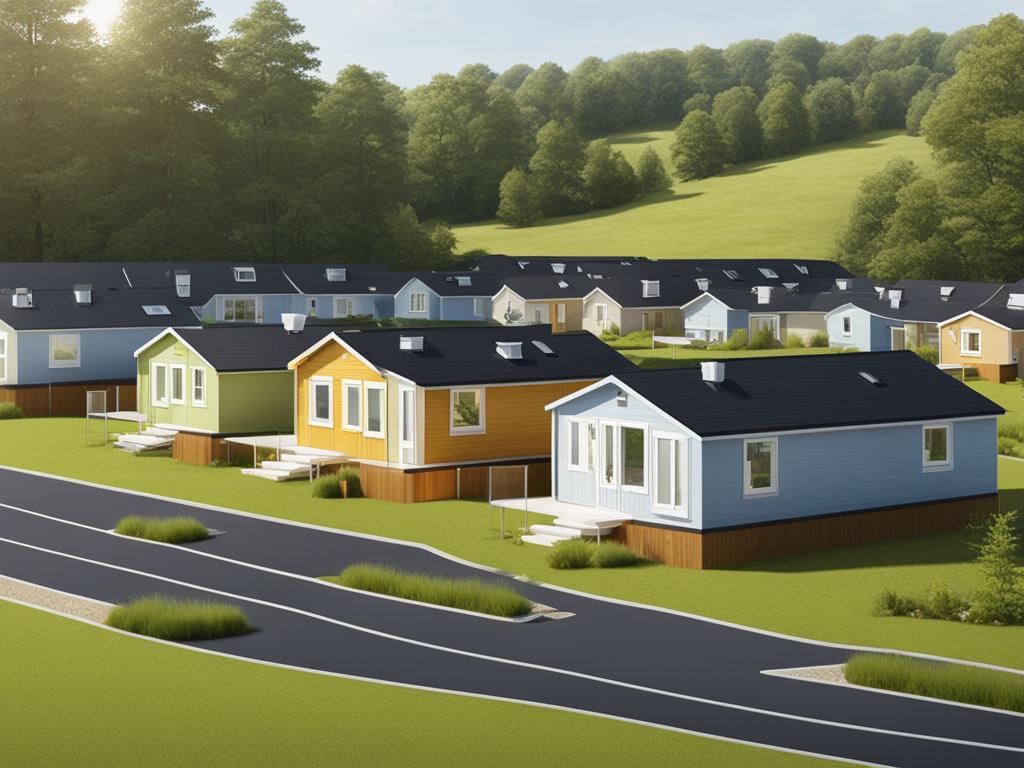
Mortgages
Contrary to popular belief, modular homes can be financed through mortgages, just like conventionally built homes. The mortgage process for a modular home is similar to that of a traditional home, and modular homes are considered mortgageable. Lenders typically evaluate modular homes based on their value, construction quality, and adherence to building codes. Modular homes can be purchased or rented from modular home builders, and some financial institutions specialize in providing loans for modular home purchases.
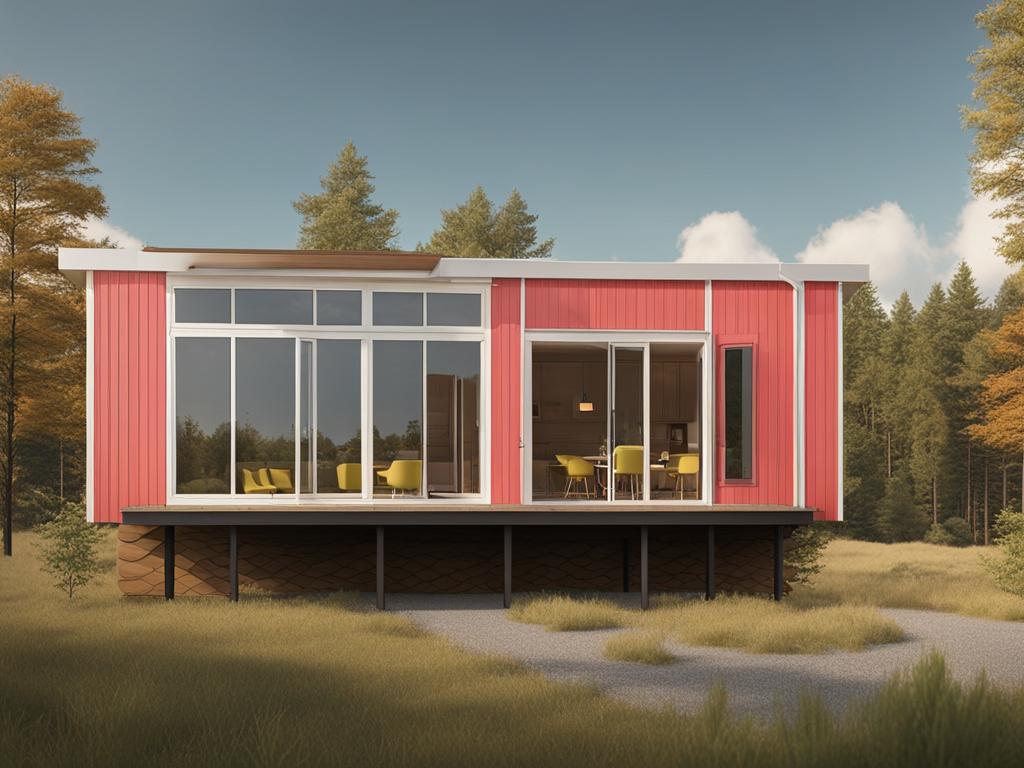
Where can I Buy or Rent a Modular Home?
Modular homes offer an affordable and flexible housing option for those looking to buy or rent a property. With the increasing popularity of modular construction, there are now numerous modular home builders and developers in the market.
One option is to explore the range of modular home developments across the country. These developments provide a variety of modular home options, allowing individuals to choose a layout and design that suits their needs. From single-family homes to multi-story apartments, there are plenty of choices available.
Well-known companies like Legal and General have recognized the potential of modular homes and have their own Modular Homes Divisions. These divisions offer a range of modular homes that combine quality construction with contemporary designs.
It’s also worth noting that partnerships between companies like IKEA and Skanska have resulted in unique modular home options. These partnerships bring together expertise in construction and design to create innovative and stylish modular homes.
In addition to private developers, local authorities and housing associations are also purchasing modular homes for rental purposes. This means that renting a modular home is becoming an increasingly viable option for those in need of affordable and sustainable housing.
If you are considering buying a modular home, it is advisable to research and connect with reputable modular home builders and developers. They can provide guidance and assistance throughout the process, ensuring you find the right modular home for your needs.
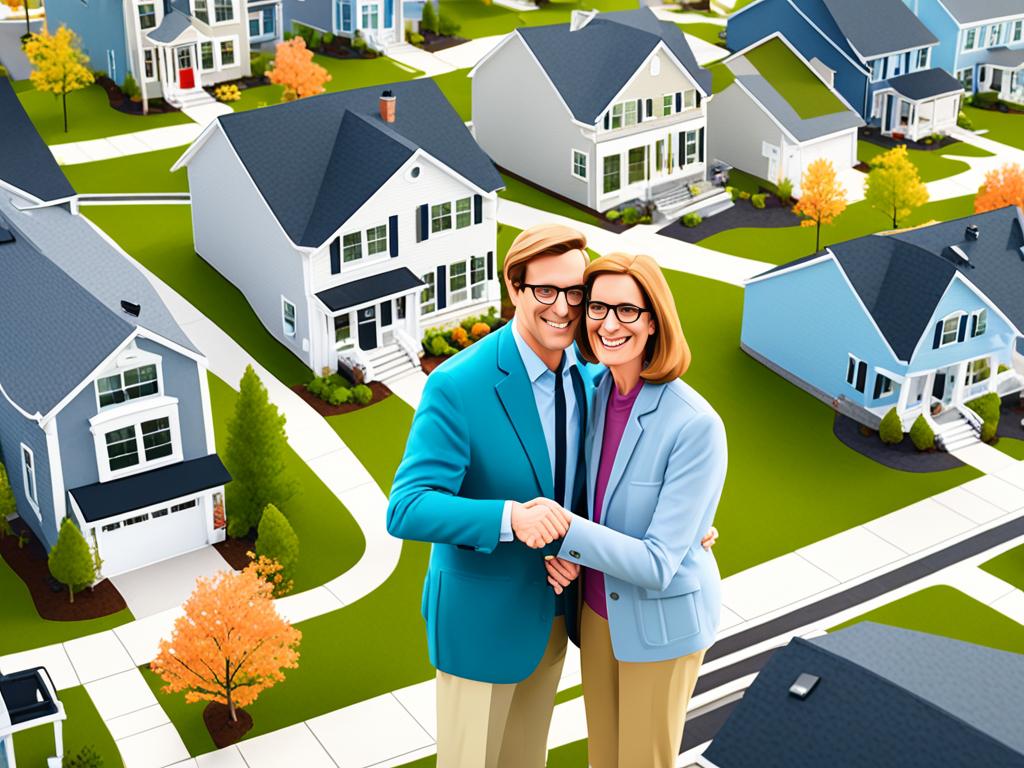
Conclusion
Modular homes provide a contemporary and efficient solution for those seeking an alternative to traditional homes. Built in a factory using offsite construction techniques, these homes offer the convenience of customization to cater to individual preferences. With their numerous advantages, including faster construction, cost efficiency, and high-quality design, modular homes have become a popular choice in the housing market. While there may be limitations in terms of design options, they are generally on par with conventionally built homes in terms of quality. Financing a modular home is similar to financing a traditional home, with mortgages being available for purchase. Whether buying or renting, there is a wide range of modular home builders and developers to choose from.
Overall, modular homes present a modern and sustainable housing solution, meeting the needs of individuals who value efficiency and convenience. As the demand for more affordable and eco-friendly housing options increases, modular homes have emerged as a viable and attractive choice. With their sleek designs, shorter construction times, and ability to be customized, modular homes offer a compelling living experience.
From urban developments to partnerships with well-known companies, the availability and accessibility of modular homes continue to expand. As more individuals become aware of the benefits and opportunities associated with modular homes, it is expected that this industry will continue to flourish. Whether it’s a young family looking for their first home or retirees seeking to downsize, modular homes offer a practical and stylish solution.
FAQ
What do modular homes generally look like?
Modular homes have contemporary designs and incorporate modern materials such as timber, steel, concrete, and glass. They can be customized to suit individual preferences and can be flats, apartments, or houses.
What are the advantages of modular homes?
Modular homes are quicker to build, less likely to be delayed, and often cheaper to build compared to traditional homes. They are also energy-efficient and offer a wide range of contemporary designs.
What are the disadvantages of modular homes?
Modular homes have a limited range of designs and customization options compared to conventional homes. They may also be more complicated to maintain and repair, and it can be challenging to modify or extend them.
Are modular homes like mobile homes?
No, modular homes are not the same as mobile or park homes. They are permanent buildings that meet the same building regulations and standards as conventionally built homes.
Can modular homes be self-builds?
While it is possible to self-build a modular home, most modular homes are manufactured and built by professional developers and builders. Some companies offer self-build modular home kits for individuals to assemble their own modular home.
Can I get a mortgage for a modular home?
Yes, modular homes can be financed through mortgages. The mortgage process for a modular home is similar to that of a traditional home, and modular homes are considered mortgageable.
Where can I buy or rent a modular home?
Modular homes can be bought or rented from various modular home builders and developers. There are modular home developments across the country, and some well-known companies, such as Legal and General, have their own Modular Homes Divisions.
What is the summary of modular homes?
Modular homes offer a contemporary and efficient alternative to conventional homes. They are built in a factory using offsite construction techniques, can be customized, and are considered to be as good as conventionally built homes.
